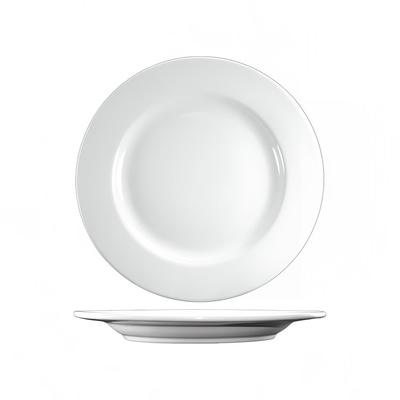Hey Diva dressing fans! When the items we love coincide with brands we work with, Diva dressing will use Paid Links in our articles. If you decide to click on these links and purchase the product, we get a small commission. Our Opinions Are Our Own, but we do add Paid Links as a way to offer these products at no added cost to our readers. Want to know more? Click Here to check out our Terms of Use anytime!
Maintaining healthy cholesterol levels is crucial for heart health and overall well-being. While medication can be effective, dietary changes play a vital role in naturally lowering cholesterol levels. Here are some effective eating strategies that can help you manage your cholesterol through natural means.
Emphasize Heart-Healthy Foods
Increase Fiber Intake:
Soluble Fiber: Foods rich in soluble fiber can help lower LDL (bad) cholesterol. This type of fiber dissolves in water and forms a gel-like substance in the gut, which can bind to cholesterol and help remove it from the body. Include sources such as:
- Oats: Start your day with a bowl of oatmeal topped with fruits or nuts.
- Barley: Use barley in soups and salads for a nutritious boost.
- Beans and Lentils: Incorporate these legumes into chili, salads, or as a side dish.
- Fruits: Apples, pears, and citrus fruits are excellent choices; try making smoothies with blended fruits and spinach.
- Vegetables: Carrots, broccoli, and Brussels sprouts not only add color but also enhance fiber intake.
- Insoluble Fiber: While not as effective at lowering cholesterol as soluble fiber, insoluble fiber is still important for digestive health and regularity. Include whole grains, nuts, and seeds to ensure a balanced fiber intake.
Polyunsaturated Fats: These fats, especially omega-3 fatty acids, are beneficial for heart health. Include:
- Fatty Fish: Aim for at least two servings a week of salmon, mackerel, sardines, or trout. You can grill, bake, or pan-sear these for a nutritious meal.
- Walnuts: Snack on a handful of walnuts or add them to salads and oatmeal for a satisfying crunch.
- Flaxseeds and Chia Seeds: Sprinkle these seeds on yogurt or blend them into smoothies to boost fiber and omega-3 intake.
Incorporate Plant Sterols and Stanols
Plant sterols and stanols are naturally occurring substances found in plants that can block the absorption of cholesterol in the intestines. Research shows that these compounds can reduce LDL cholesterol levels by up to 10%. To incorporate these into your diet:
- Fortified Foods: Look for products such as margarine spreads, orange juice, yogurt drinks, and snack bars that are fortified with plant sterols and stanols. Check nutrition labels to ensure you are getting adequate amounts, aiming for about 2 grams per day for optimal cholesterol-lowering effects.
Limit Saturated and Trans Fats
Reducing saturated and trans fats can significantly improve cholesterol levels:
- Saturated Fats: Found in red meat, full-fat dairy products, butter, and some oils (like coconut and palm oil). Aim to limit intake to less than 10% of total daily calories. Substitute with lean meats (chicken, turkey) and low-fat or non-fat dairy options.
- Trans Fats: Often found in processed and fried foods, trans fats can raise LDL cholesterol levels while lowering HDL cholesterol. Check food labels for “partially hydrogenated oils” and avoid these products altogether. Opt for home-cooked meals using whole ingredients to control fat sources.
Increase Omega-3 Fatty Acids
Omega-3 fatty acids can lower triglycerides and provide other heart health benefits. To increase your omega-3 intake:
- Fatty Fish: In addition to the two servings a week mentioned earlier, try to incorporate fish into various meals, such as salads, tacos, and pastas.
- Walnuts: Use walnuts as a topping for salads or oatmeal, or simply enjoy them as a snack.
- Flaxseeds and Chia Seeds: These seeds are excellent sources of omega-3s; consider adding them to smoothies, yogurt, or baked goods for an easy nutritional boost.
- Algal Oil: For those who follow a plant-based diet, algal oil supplements can provide omega-3s similar to those found in fish.
Add More Fruits and Vegetables
Fruits and vegetables are packed with nutrients, fiber, and antioxidants that can contribute to lower cholesterol levels. Aim for a variety of colorful produce:
- Berries: Strawberries, blueberries, and raspberries are rich in antioxidants and fiber; add them to smoothies, oatmeal, or yogurt.
- Apples and Pears: These fruits are easy to grab as snacks or can be added to salads for a sweet crunch.
- Leafy Greens: Spinach, kale, and Swiss chard are nutrient-dense and versatile—use them in salads, smoothies, or as cooked side dishes.
- Cruciferous Vegetables: Broccoli, Brussels sprouts, and cauliflower are great sources of fiber; consider roasting or steaming them as side dishes.
Choose Whole Grains Over Refined Grains
Whole grains contain more fiber and nutrients than refined grains, which can help lower cholesterol:
- Whole Grain Bread: Look for 100% whole grain or whole wheat bread options for sandwiches and toast.
- Brown Rice and Quinoa: Swap out white rice and pasta for brown rice, quinoa, or whole grain pasta for added fiber and nutrients.
- Oats: Enjoy oatmeal or overnight oats topped with fruits and nuts for breakfast.
Limit Sugar and Refined Carbohydrates
High sugar intake can raise triglycerides and lead to weight gain, negatively impacting cholesterol levels. Limit consumption of:
- Sugary Beverages: Sodas, sweetened juices, and energy drinks are high in sugar and can contribute to weight gain.
- Desserts and Sweets: Choose healthier options like fruit or yogurt for dessert instead of cakes and cookies.
- White Bread and Pastries: Opt for whole grain options instead, which are higher in fiber and lower in sugar.
Moderate Alcohol Consumption
Moderate alcohol consumption may have some heart health benefits, but excessive intake can lead to high cholesterol levels. If you drink alcohol, do so in moderation:
- Moderation Guidelines: Up to one drink per day for women and up to two drinks per day for men. Opt for red wine, which has been linked to heart health benefits due to its antioxidants.
Stay Hydrated with Healthy Beverages
Choose beverages that support heart health:
- Water: Should be your primary drink; aim for at least eight glasses per day to stay hydrated.
- Green Tea: May help lower cholesterol levels due to its antioxidant properties. Brew a cup and enjoy it unsweetened or with a slice of lemon.
- Limit Sugary Drinks: Avoid high-calorie beverages and sodas, which can lead to weight gain and negatively impact cholesterol.
Practice Portion Control and Mindful Eating
Being mindful of portion sizes can prevent overeating and weight gain, which can negatively impact cholesterol levels. Strategies include:
- Smaller, More Frequent Meals: Consider eating five to six smaller meals throughout the day to help regulate hunger and metabolism.
- Listen to Your Body: Pay attention to hunger and fullness cues to avoid overeating. Eating slowly can help you recognize when you’re satisfied.
- Avoid Distractions: Try to eat without distractions such as TV or smartphones, allowing you to focus on your meal and enjoy it more fully.
Here are some products that can help in your kitchen
American Metalcraft CBL40SH 40 oz Round Melamine Bowl $10.04
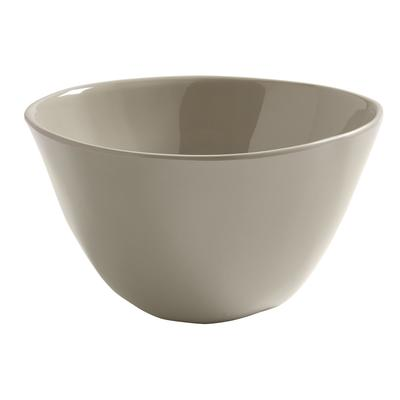
Bon Chef 9320COVER Plastic Cover Only for 10 1/10 qt Three Wall Cold Wave Bowl $10.46
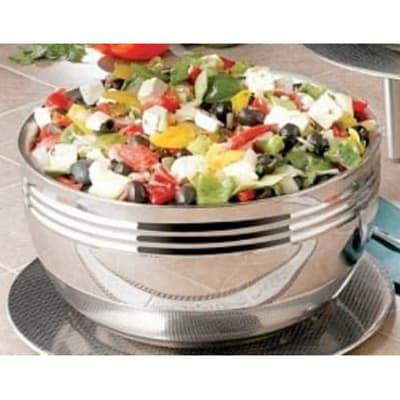
American Metalcraft UBR32MO 32 oz Round Bowl, 6 1/4″ Diameter, Melamine, Mocha $10.80
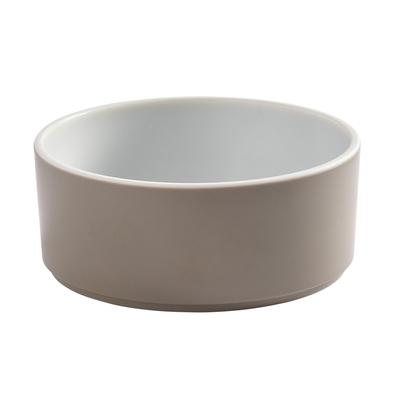
American Metalcraft SVHSS 13 1/4″ Slotted Serving Spoon $10.37
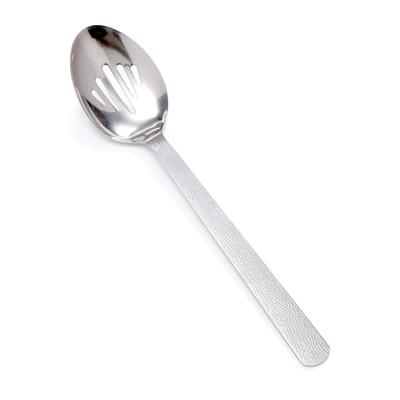
Winco 0031-04 6″ Bouillon Spoon with 18/8 Stainless Grade $10.08
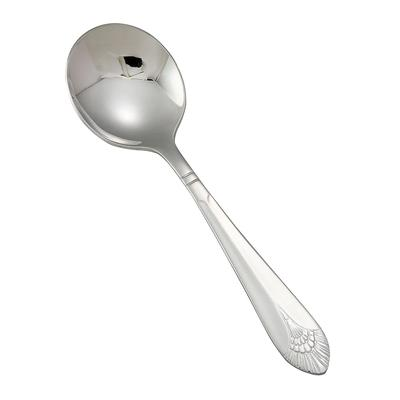
American Metalcraft DPN10WH 10″ Round Melamine Jane Plate $10.04
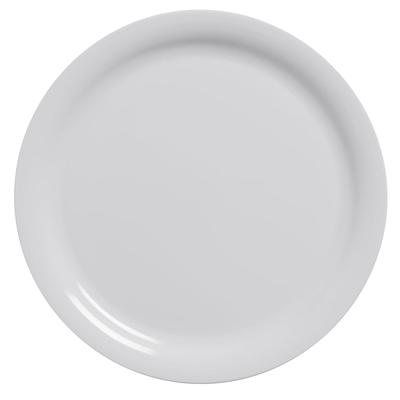
ITI DO-211 11″ Round Dover Plate $10.27
